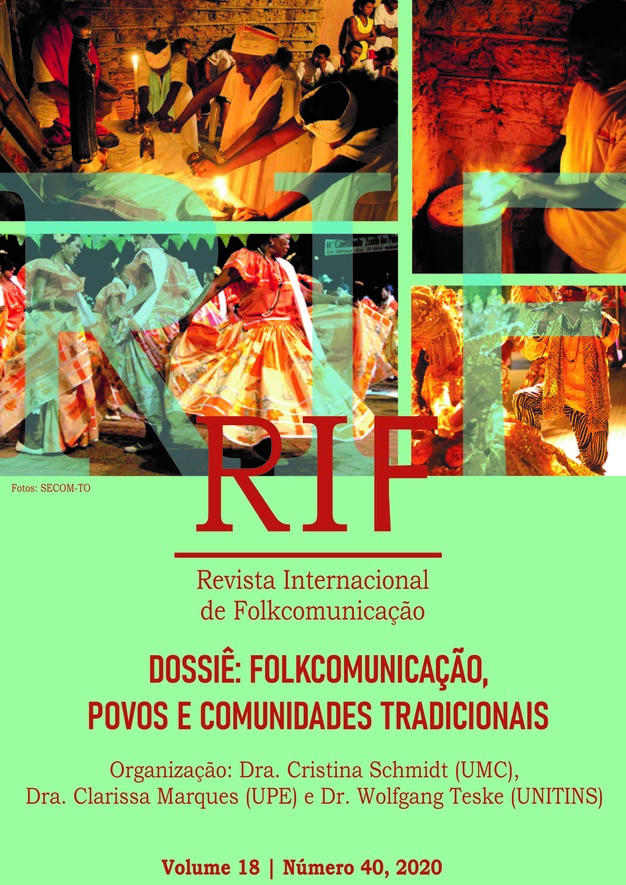Traditional people in the teaching material “Quilombola Narratives: dialogue - know - communicate"
DOI:
https://doi.org/10.5212/RIF.v.18.i40.0003Abstract
The importance of having a specific teaching material for the quilombola community is understood, so that students can learn about the culture of their community and have a meaningful learning, for those who do not belong to the traditional community, they can know the people life style and so respect them. The study is descriptive with a qualitative approach and aims to analyze the teaching material “Quilombolas Narratives: dialogue - know - communicate”, carried out by the São Paulo State Department of Education and by the Educational Inclusion Center, recognizing the importance of narratives as an instrument of knowledge and appreciation of the quilombos traditions, stories, struggles and resistance, as a didactic resource, they allow textual, grammatical and sociocultural exploration, providing interdisciplinarity and interaction with traditional knowledge. Quilombola; Education; Afro-Brazilian community; Traditional people.
Downloads
Downloads
Published
How to Cite
Issue
Section
License

Este obra está licenciado com uma Licença Creative Commons Atribuição 4.0 Internacional.
Os autores são responsáveis, em qualquer que seja o formato do texto, pelas opiniões expressas ou indiretas presentes em seus respectivos trabalhos, não endossáveis pelo Conselho Editorial e pelos editores da Revista, bem como pela autenticidade do trabalho. Ao publicar trabalhos na Revista Internacional de Folkcomunicação, os autores cedem automaticamente os direitos autorais à publicação para veiculação das produções acadêmicas, sem ônus para a Revista. Os autores detêm os direitos autorais do texto para o caso de publicações posteriores e concedem à Revista Internacional de Folkcomunicação o direito de primeira publicação, com o trabalho simultaneamente licenciado sob a Creative Commons Attribution License, que permite o compartilhamento do trabalho com reconhecimento da autoria e publicação inicial nesta Revista. Por serem publicados em revista de acesso livre, os artigos são de uso gratuito, com atribuições próprias, em atividades educacionais e não-comerciais, sendo permitida a publicação simultânea em repositórios institucionais.































